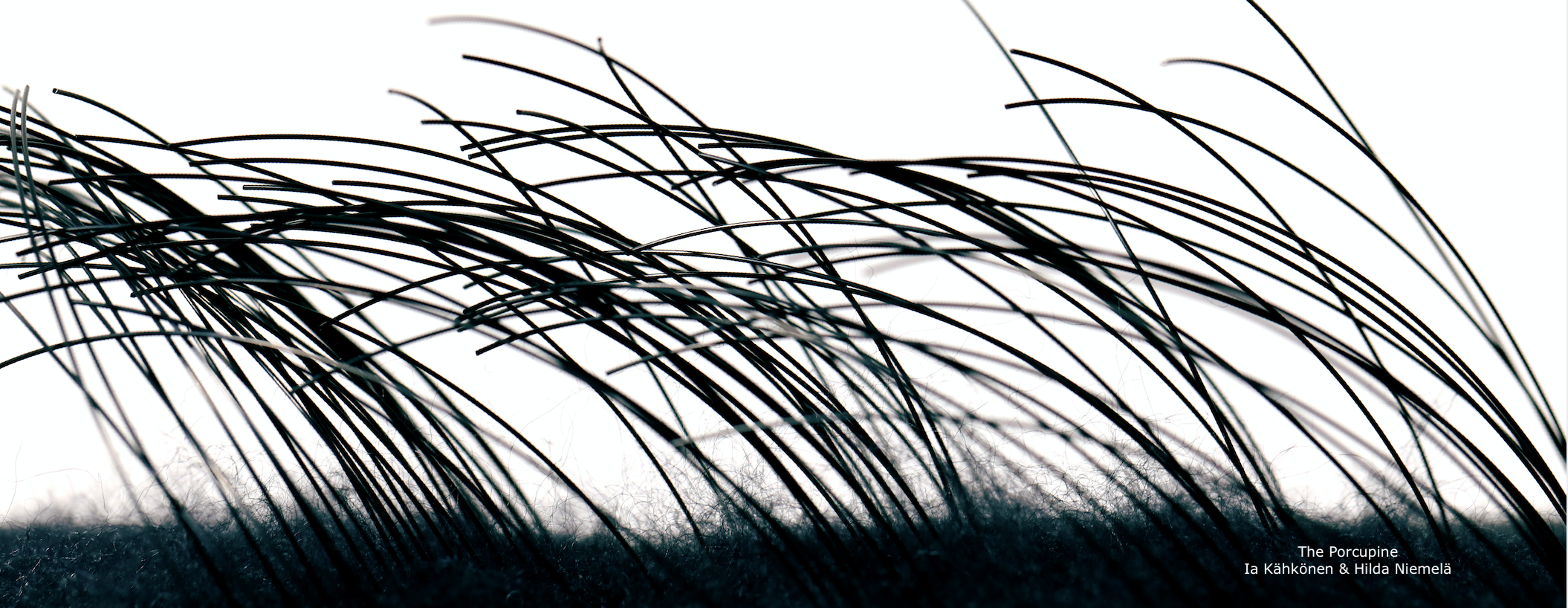
LEARNING OUTCOMES
After successfully completing this course, students should be able to develop concepts and solidify their personal projects through explorative and creative approaches. They develop an understanding of how to use textile materials and techniques as a form of expression. Students learn how to manage creative processes resulting in innovative products and collections and recognize the new opportunities in the field of textiles related to neighbouring disciplines. Students that have participated in Studio Courses gain technical knowledge and understanding of textile techniquesand development in basics of knits and knitwear, printed fabrics and/or woven fabrics. ARTs students that have taken part in ENGARTs project, gain basic understanding of novel possibilities of combining science and technology with textile design practices through interdisciplinary and collaborative work with Engineering students. Engineering students understand creative practices in the field of fashion and textile design.
Credits: 10
Schedule: 02.11.2021 - 09.12.2021
Teacher in charge (valid for whole curriculum period):
Teacher in charge (applies in this implementation): Maarit Salolainen, Hanna-Kaisa Korolainen, Helmiina Hirviniemi
Contact information for the course (applies in this implementation):
CEFR level (valid for whole curriculum period):
Language of instruction and studies (applies in this implementation):
Teaching language: English. Languages of study attainment: English
CONTENT, ASSESSMENT AND WORKLOAD
Content
valid for whole curriculum period:
Students are familiarised with traditional, novel, and experimental textile materials and production methods. Students explore the traditional and/or explorative methods and manufacturing processes of textile materials and use them as a starting point for their personal projects. The course takes a practice-led approach to design based on literature and students personal research. Students can experiment with variety of techniques such as experimental embroidery, 3Dprinting, and laser cutting. Students without prior knowledge of textile techniques learn the basics of knits and knitwear, printed fabrics, and/or woven fabrics within the integrated basic studio courses. The ARTs students with previous knowledge of textile techniques can take part in the multidisciplinary ENGARTs project within the course. ENGARTs Project is conducted in collaboration with engineering students, in which the teams explore innovative methods of combining technology and textile techniques.
The scope of the course is 10 cr, which can partially include 1 to 2 Studio Courses and/or ENGARTs Project based on student s Personal Study Plan. Refer to further information for clarification.
Assessment Methods and Criteria
valid for whole curriculum period:
The students work is assessed based on: 1) Each student s individual development and progress in their personal projects. 2) Creative approaches and learning curve. 3) Student s activity and participation in the course, 4) Presentations and final results
Workload
valid for whole curriculum period:
10 ECTS = 270 h
80 h Lectures, independent and group tutoring
10 h Critiques
150 h Independent work
35 h Own reflection
DETAILS
Substitutes for Courses
valid for whole curriculum period:
Prerequisites
valid for whole curriculum period:
SDG: Sustainable Development Goals
12 Responsible Production and Consumption
FURTHER INFORMATION
Further Information
valid for whole curriculum period:
Maximum number of students in 2020-21 course implementation changed by decision of vice dean Rasmus Vuori.
Studio courses within Experimental Textile Design-course: participation in the studio courses should be approved by the professor during the Personal Study Plan meetings. After the approval student should register to the Studio Courses: Printed Fabrics Studio, Knits and Knitwear Studio, Woven Fabrics Studio or Textile Collection: Processes and Finishings -courses separately.
Important note: only 1 or 2 studio courses can be integrated to Experimental Textile Design Course. Due to workload weight and scheduling conflicts, simultaneous participation in Knits and Knitwear Studio and Woven Fabrics Studio is not possible.
Participation in the ENGARTs Project is also determined during the Personal Study Plan sessions and/or upon approval by the professor.
Important Note: The course requires students full time commitment in this module.
Attendance Policy: 80% required
Mandatory Sessions: Lectures, Tutoring sessions, Mid-term critique, Final Critique
Status of the course, content, registration for course and further information changed by decision of Academic Committee for Arts, Design and Architecture on 25 August, 2020.
Teaching Period:
2020-2021 Autumn II
2021-2022 Autumn II
Course Homepage: https://mycourses.aalto.fi/course/search.php?search=MUO-E1048
Registration for Courses: Sisu replaces Oodi on 9 August, 2021. Priority order to courses is according to the order of priority decided by the Academic committee for School of Arts, Design and Architecture: https://www.aalto.fi/en/services/registering-to-courses-and-the-order-of-priority-in-aalto-arts
In WebOodi- Max 18 students,
Priority:
- Fashion, Clothing and Textile Design students MA (based on personal study plan - HOPS)
- Exchange students in Fashion or Design or in FaCT
- Students from other fields based on approval by Professor
